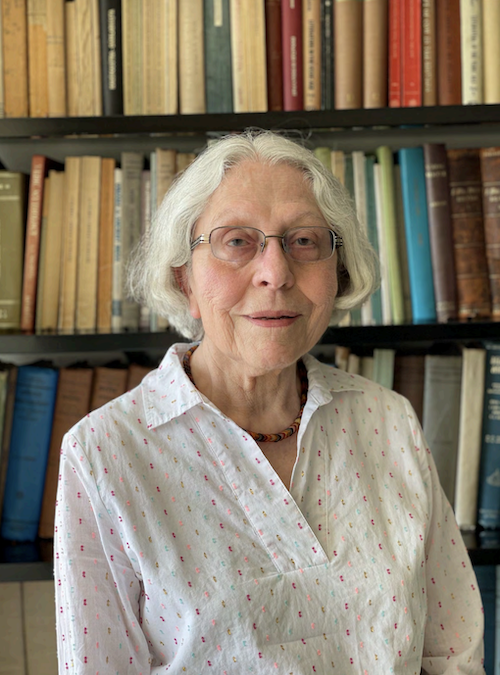Hommage à Rosane Rocher
Un hommage à Rosane Rocher se tiendra ce vendredi 9 décembre 2022 à Paris sur le Campus des Grands moulins (plan ci-joint) de 15 heures à 18 heures.
Programme
- 3pm – 3:30pm
Agathe Keller (CNRS, SPHere)
An intellectual biography of Rosane Rocher
Rosane Rocher’s work is especially remembered for her biographies of early indologists and of some of the pandits they employed. Reflecting on her intellectual itinerary, I would like to link these works with others she has carried out through out her career, from Belgium to the University of Pennsylvania, drawing thus a portrait of a woman indologist in academia in the second half of the 20th and the beginning of the 21st century.
- 3:30pm – 4pm
Minakshi Menon (Max Planck Institute for the History of Science, Berlin)
Rosane Rocher and Histories of Science in South Asia
Historians of science have responded to the challenge of writing histories of science in the “non-west” by using the concept of the “broker” in order to analyse cross-cultural knowledge flows. The broker or go-between has been used as a capacious category to accommodate translators, spies, healers, and interestingly, pandits in the service of the English East India Company. Such histories, though, rely almost entirely on European-language sources. Rosane Rocher’s biographies of pandits, which draw on their own works in Sanskrit, act as a corrective, allowing us to recover histories of actors embedded in complex social relationships, responding to rapid changes in their social and material conditions. The new turn to writing decolonial histories of science in South Asia, I argue, would be difficult in the absence of Rocher’s work.
- 4pm – 4:30pm
Joshuah Ehrlich (University of Macau)
The Career of Mootiah Teroovercadoo, an Eighteenth-Century Mudaliar Scholar in British Employ
This paper takes its inspiration from Rosane Rocher’s landmark study of Radhakanta Tarkavagisa. In similar fashion, it examines the career of Mootiah Teroovercadoo (Muttiah Thiruverkadu), another Indian scholar who collaborated with the Company. It compares the experiences of the two men, drawing a contrast between patterns of scholarly patronage in the south and in the north. It finds that in the growing Madras Presidency, as early as the 1790s, the East India Company sought to recruit scholar-collaborators from non-elite social groups. Mootiah, a Mudaliar and Shaivite, was different in many ways from the venerable pandit Radhakanta. But he too encountered both opportunities and dangers in his novel relationship with the Company.
- 4:30pm – 4:45pm Break
- 4:45pm – 5:15pm
Richard Lariviere (Professor Emeritus, University of Texas at Austin and President Emeritus, Field Museum of Natural History, Chicago)
Actors in the Colonial Enterprise
The term “colonialism” has taken on such power that it has now slipped into the category of broad-brush terms such as fascism or socialism: terms that are both short-hand for specific phenomena and terms of abuse in the political arena. In the latter case, the terms have become nearly meaningless. Rosane Rocher’s work is an important grounding for scholars because it shows us how individual acts and careers shaped the colonialism of the 18th and 19th century. We come to know through her work human specifics of the colonial enterprise. Such specific accounts of the work of scholars of this period can lead to important introspection for our own work as scholars.
- 5:15pm – 6pm
General Discussion
Informations pratiques et lien zoom
Evénement hybride : vous pouvez suivre la session via Zoom, pour le lien veuillez écrire à Karine Chemla (chemla@univ-paris-diderot.fr) avec le mot clé : « 9-12-22-CHPSAA » comme sujet de votre mail.
Organisé par : M. Menon, A. Keller and K. Chemla
Contact : kellera@univ-paris-diderot.fr
Adresse : Paris, Campus des Grands Moulins, Bâtiment Condorcet, salle 412-B Rothko

